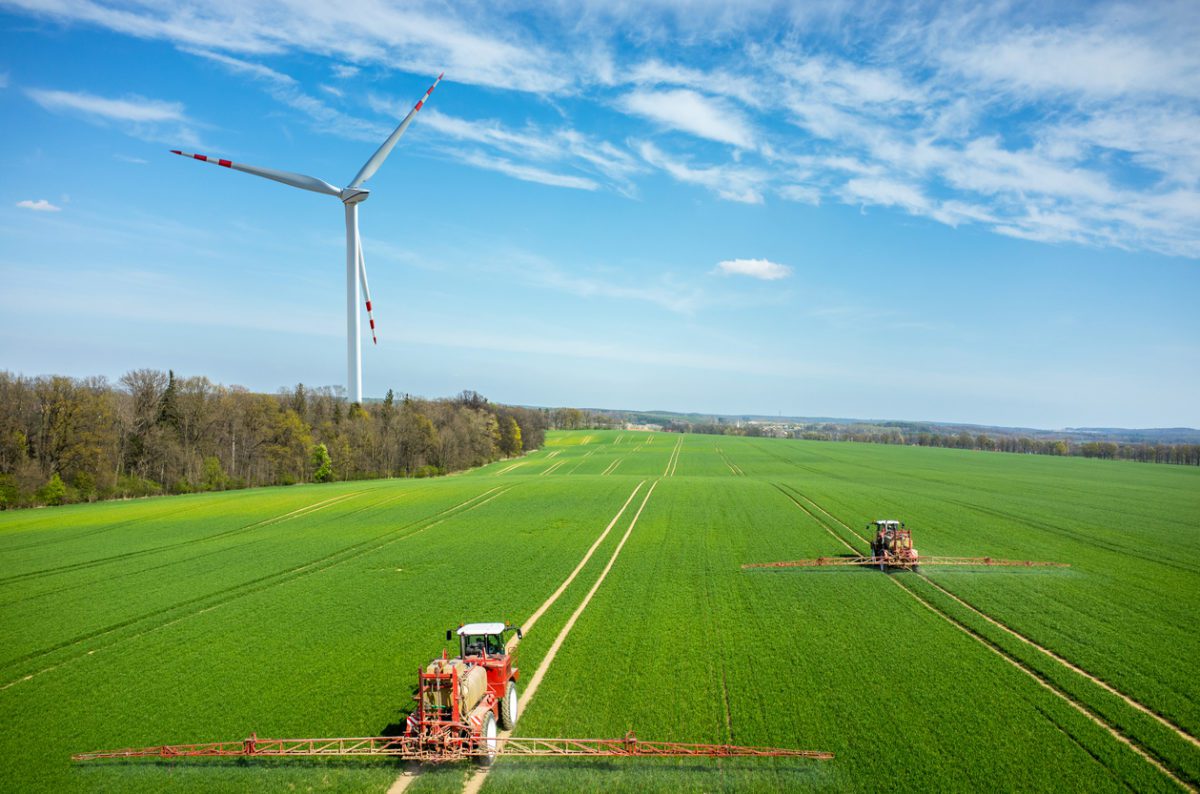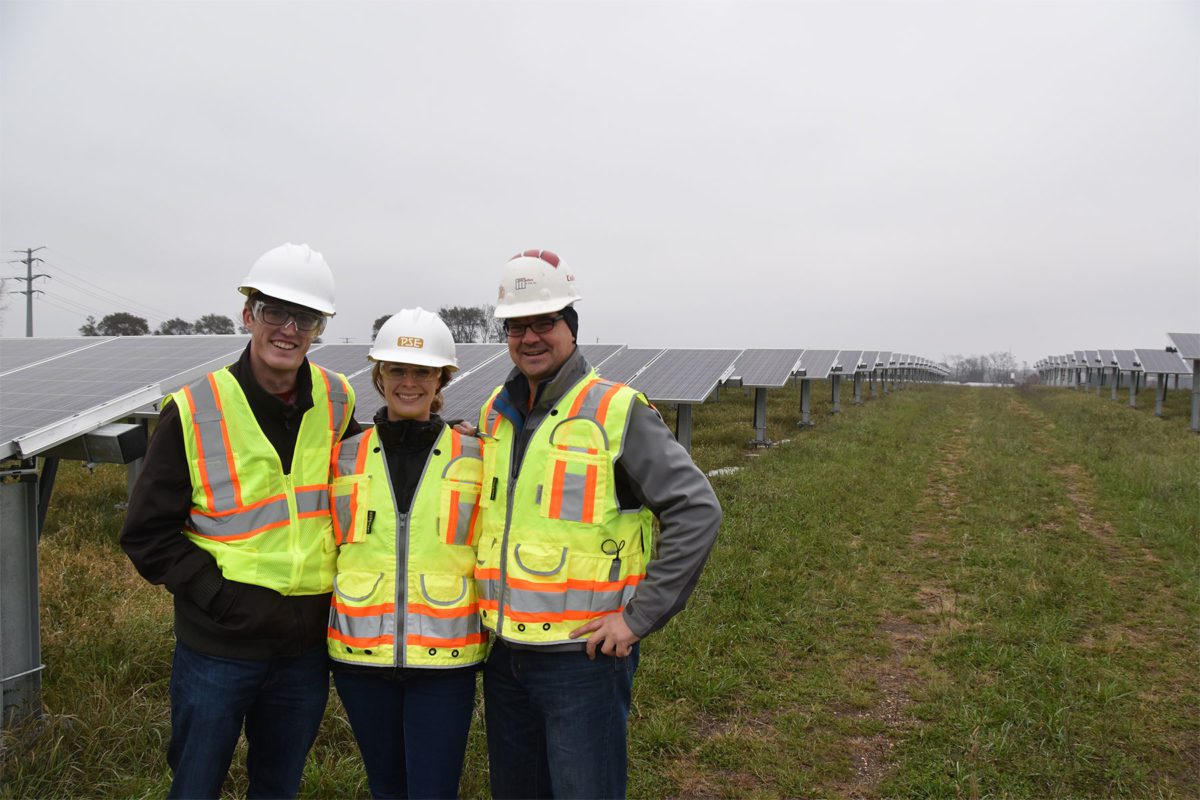Environmental Conservation: Enviro Observation & Informatics MS
Master of Science in Environmental Conservation

Push the limits of remote sensing and geospatial analysis, and complete your master’s program in Environmental Observation and Informatics at UW–Madison in just 15 months.
Is this program right for you?
The professional master’s program in Environmental Observation and Informatics (EOI) from the University of Wisconsin–Madison prepares you to meet the global demand for people who can merge technical expertise and leadership to advance conservation efforts.
At UW–Madison you build expertise to interpret and apply remotely sensed earth observation data to complex environmental problems. Employers say they are neither prepared nor staffed to meet the explosion in environmental technology and information, while the need for this expertise just keeps growing. Recent studies have shown the environmental sector’s need for big data analytics has risen 50% in recent years.
Complete your Environmental Observation and Informatics master’s program in just 15 months through a unique hybrid approach that combines face-to-face learning on campus in summer and fall, online courses in spring, and a leadership experience that can take place anywhere in the world in your final summer.
UW–Madison’s deep environmental expertise and connections at government agencies, businesses, and nonprofits provide opportunities for you to find networks and form connections across the globe. You learn with a small cohort of like-minded peers, all driven by the desire to improve conservation efforts locally, nationally, and internationally.
You become proficient in remote sensing and integrated technology, modeling and analysis, and leadership. In the short time it takes to complete your master’s program in Environmental Observation and Informatics, you learn not just how to use data to make sound decisions, but how to direct the teams that use data to improve our future.
Is this program right for you?
The professional master’s program in Environmental Observation and Informatics (EOI) from the University of Wisconsin–Madison prepares you to meet the global demand for people who can merge technical expertise and leadership to advance conservation efforts.
At UW–Madison you build expertise to interpret and apply remotely sensed earth observation data to complex environmental problems. Employers say they are neither prepared nor staffed to meet the explosion in environmental technology and information, while the need for this expertise just keeps growing. Recent studies have shown the environmental sector’s need for big data analytics has risen 50% in recent years.
Complete your Environmental Observation and Informatics master’s program in just 15 months through a unique hybrid approach that combines face-to-face learning on campus in summer and fall, online courses in spring, and a leadership experience that can take place anywhere in the world in your final summer.
UW–Madison’s deep environmental expertise and connections at government agencies, businesses, and nonprofits provide opportunities for you to find networks and form connections across the globe. You learn with a small cohort of like-minded peers, all driven by the desire to improve conservation efforts locally, nationally, and internationally.
You become proficient in remote sensing and integrated technology, modeling and analysis, and leadership. In the short time it takes to complete your master’s program in Environmental Observation and Informatics, you learn not just how to use data to make sound decisions, but how to direct the teams that use data to improve our future.
Admissions requirements
All applicants must:
- Have a bachelor’s degree from an accredited institution.
- Have a minimum undergraduate GPA of 3.0.*
- Demonstrate geospatial or statistical ability through coursework or portfolio.
- Submit GRE scores using code 1846.*
- Submit evidence of English language proficiency, if applicable. The required proficiency scores are: TOEFL IBT 92, PBT 580; or IELTS 7.0.
*GRE scores are not needed for students with a 3.0 or higher GPA, professional quantitative experience, or an undergraduate degree with a quantitative component, such as a Bachelor of Science degree.
Application materials required:
- Online application
- Supplemental application
- Resume/CV
- Statement of interest
- Transcripts
- Two letters of recommendation
Program highlights
- You get the best of both online and on-campus learning. Work toward your degree on campus for two semesters and anywhere in the world for the other two semesters. You graduate in just 15 months.
- UW–Madison’s academic connections to government agencies, organizations, and nonprofits give you the chance to network with environmental conservation professionals around the globe.
- Complete your degree program with a small cohort of like-minded peers, all driven by environmental goals, creating a community that is invested in your success both in and out of the program.
How you'll learn
- 15-month curriculum includes two semesters of study on UW–Madison campus, one semester of online coursework, and one semester of independent learning.
- Complete 8 credits in summer and 11 credits in fall on campus, complete 9 credits of distance learning courses in spring, and participate in a 4-credit leadership experience in summer—in Madison or from anywhere in the world.
- Go through the program as part of a small cohort of students.
Sample curriculum
Summer (on campus)
- Fundamentals of Environmental Remote Sensing
- Statistics I: Foundations
- Statistics II: Regression & Big Data
- Tools I: Collecting & Mapping Data
- Environmental Leadership Seminar
Fall (on campus)
- Environmental Sensing Technologies
- Advanced Digital Image Processing
- Environmental Monitoring Seminar
- Policy and Politics of Environmental Information
- – or –
- Remote Sensing for International Development
Spring (online)
- Advanced Remote Sensing
- Modeling and Analysis of Global Environmental Systems
- Statistics III: Methods for Spatial Data
- Tools II: Landscape Evaluation & Conservation GIS
- Tools III: Adaptation Strategies with GIS
Summer (independent learning)
- Summer Leadership Experience
Job outlook
- Geospatial Analysis1
- Research Science
- Data or Software Development
- Communications
- Business Development
- Government1
- NGOs
- Industry
- Academia
Source: Burning Glass Technologies: Labor Insight. 2020.
Burning Glass Technologies’ Market Salary is an estimated expected salary. Market Salary uses machine learning algorithms to account for experience, skill, and education among other factors that may impact individual salaries.
Source 1: Burning Glass data and 2019 alumni survey
Ready to learn more about Environmental Conservation: Enviro Observation & Informatics MS?
View the UW-Madison Guide
Stay in touch
Sign up to receive application tips and deadline reminders.
Connect with our enrollment coaches
Our friendly, knowledgeable enrollment coaches are here to answer your questions. Contact an enrollment coach to:
- Learn how to make this program work with your life/schedule
- Get help with your application
- Determine if financial aid is available
Visit with our coaches on campus or at an upcoming student fair in your area. Search student fairs & events.


